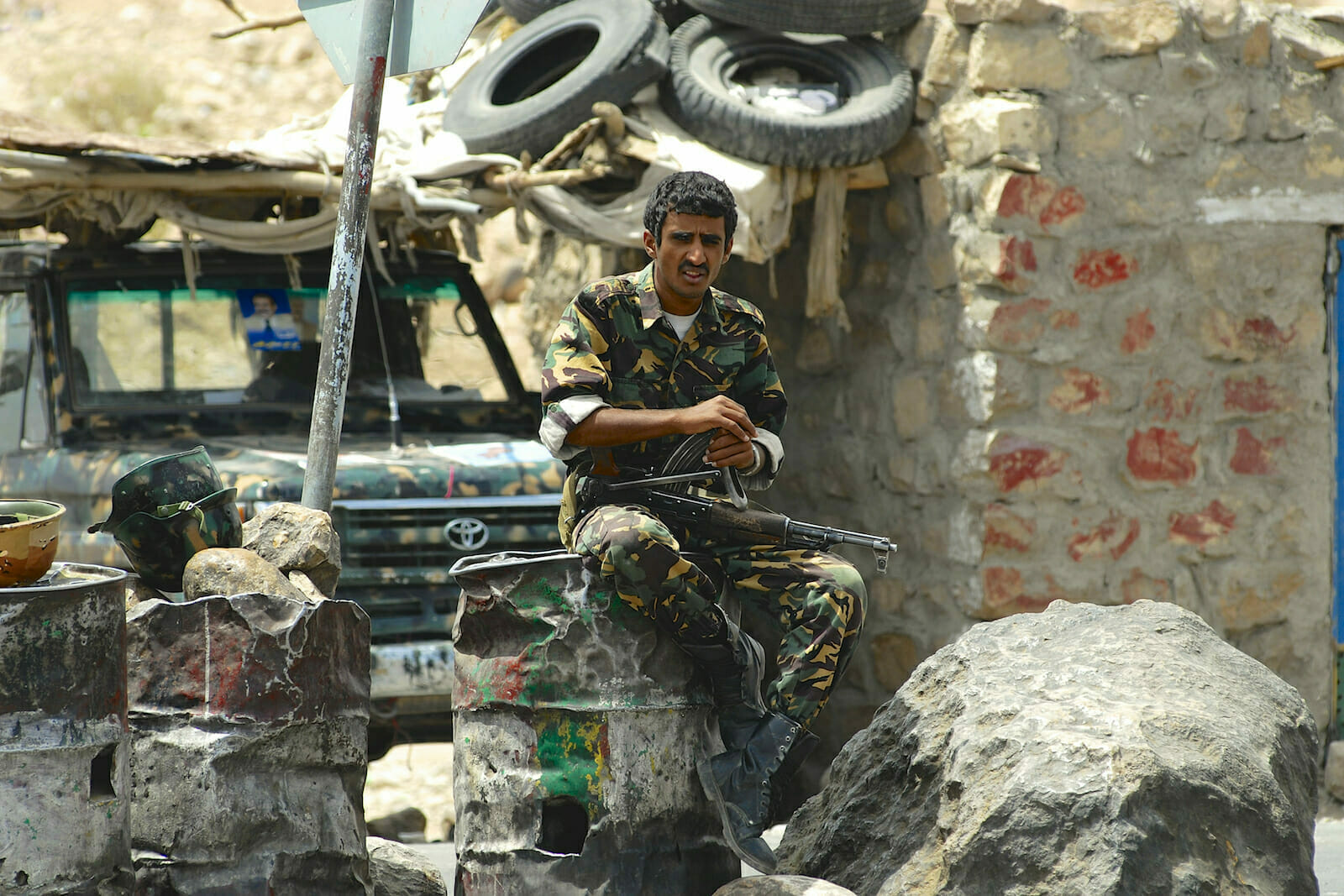
Compassion, Leadership and Peace: The Yemen War
In the summer of 1968, LIFE Magazine published a ten-page spread on the Biafran War. Even if you weren’t alive at that time, the magazine cover has likely imprinted itself in your memory: Starving Nigerian children gazing deep in suffering into the lens of the photographer. At the time, the Biafran War was considered the most devastating humanitarian crisis in the world. Today, that crisis and those starving children are in Yemen.
The U.S. joined the Yemen War in 2015, a year after its outbreak, supporting the Saudi Arabia-led coalition against the Yemeni Houthi rebels. The fighting has seen thousands killed, millions displaced, and even more on the brink of starvation. With no end in sight, it is time for the U.S. to withdraw its support for the war and throw its weight behind humanitarian relief efforts.
Current U.S. policy provides intelligence support and military weaponry to the coalition members, especially Saudi Arabia and the United Arab Emirates. The war has blocked key shipping ports in Yemen, preventing lifesaving food and medicine from reaching its citizens. Yemen, already one of the poorest countries in the region at the onset of the conflict has been further debilitated by the COVID-19 pandemic. Imagine trying to wash your hands with no water or social distancing in an overcrowded displacement camp.
There have been attempts at a peace agreement between the coalition and the Houthis, none of which have resulted in lasting peace. Now it is time for the U.S. to shift its strategy, withdraw support from the coalition and focus its efforts on humanitarian relief, and promoting peace.
Withdrawing from the coalition will weaken its resources significantly. Without the support of the U.S., coalition members will have to rely solely on their own resources or garner support from other capable countries. This may encourage Saudi Arabia and other coalition countries to reconsider the cost of continuing the war as support wanes.
A shift in policy will also dissuade the continuation of fighting. This option underscores U.S. disapproval of the war. It encourages the coalition members to reconsider their goals in fighting and pushes them in the direction of negotiations to end the war.
Finally, the funds we are using to provide support to the coalition can and should be redirected to humanitarian relief efforts in Yemen. Our involvement in the war costs billions of dollars a year and with five years already on the books, more and more funds would need to be funneled into a conflict with no clear end in sight. This money can instead be used to provide food, water, and medicine to Yemenis in need.
Our participation in the war for the last five years has not had the intended consequences. The goal of the U.S. and the international community is peace among nations. It is unwise and detrimental to continue supporting a war without a clear strategy to achieve sustainable peace. We do not want another Afghanistan on our hands. We must rethink our strategy and make peace a priority.
It is time for us to move out of Yemen. The U.S. is in a period of transition and now is the best time to act. We must choose compassion over conflict, and peace over war. This is the time to show the people of Yemen that we value their humanity over fleeting political goals, that we stand with them, support them, and care about their future. It is time for us to stop support for the war and put the weight of our effort behind humanitarian relief.

